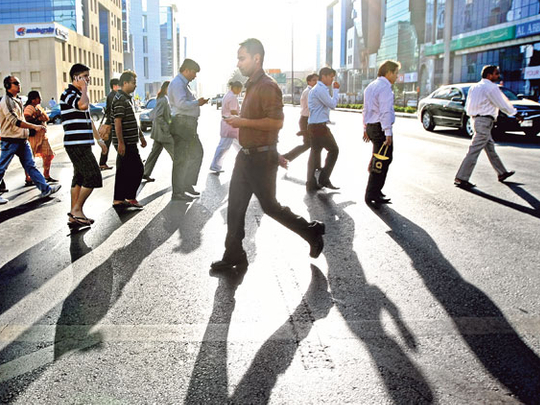
It is no secret that there is a strong correlation between economic and technical progress and the recruitment of highly skilled and qualified workers.
Throughout its history the United States has looked to recruit highly qualified people and, as a result, turned into the world's first econ-omic power, with its GDP today comprising nearly 23 per cent of the gross world product.
The flow of highly qualified and skilled manpower to the US began soon after the discovery of the American continent, and has continued to the present day. Let us not forget that Steve Jobs, who sparked a revolution in the thinking of the world's young generation, was born to a Syrian father.
The recruitment of highly trained and qualified people has become an important issue to any country that wants to keep up with rapid economic and technological progress, especially as demand for these high-quality individuals often outweighs supply. As a result, various countries around the world have offered a special package of incentives to attract qualified and highly skilled people, especially in developed nations. Germany, for example, has recently offered many facilities for people specialised in different branches of science, imitating many other European countries that have amended their immigration laws to attract more skilled migrants.
Leaving the GCC
In the Arabian Gulf states there are many highly skilled and qualified expatriate cadres who have settled here and contributed effectively to the progress of GCC countries. The GCC countries have many opportunities to achieve excellence, which are not measured by growth rates only, but in terms of scientific inventions and discoveries that can be associated with the production of hi-tech commodities. These areas have benefited from the presence of qualified and highly skilled expatriate workers.
But recently some highly qualified people are leaving the GCC countries, returning home or migrating to Europe. The main reason for this is the progress achieved by some emerging countries like India, which has led to an increase in living standards and salaries, bringing them, in some cases, in line with what expatriates can make in the GCC.
If this rapid growth continues, it will be to the detriment of the GCC, which could potentially face a shortage in specialist areas due to the growing demand in other areas of the world. This shortage will be even more acute in projects related to the production of modern technologies in some GCC countries, including renewable energy.
Countries such as Saudi Arabia have recently noticed this, and have begun to take action.
The kingdom recently issued a bold decision aimed at granting Saudi citizenship to 1,000 highly skilled and qualified expatriates annually, a move that will end up with naturalisation of 10,000 specialists and professionals with high qualifications, thus adding to the local economy over the next ten years.
Emiratising
This step could now be followed by others, such as establishing research centres and scientific academies, similar to the Academy City in India. Qualified people need research centres and scientific environments that allow them to give their best and creativities in all areas. Regretfully, such research centres are limited in this region.
Among Middle Eastern countries, the GCC countries are more likely to enter the areas of research and scientific inventions if they manage to recruit and nurture qualified people. This is because no matter how advanced local qualifications are, they cannot meet the requirements for modern development due to many reasons related to education and the accumulation of scientific foundations on which research centres and scientific discoveries are based.
Furthermore, the GCC has strong infrastructure and financial capabilities that will enable them to compete with European and emerging countries in attracting qualified expatriates. At the same time, the development and training of national qualifications available in the GCC countries will be an asset to those looking to move to the region.
Dr Mohammad Al Asoomi is a UAE economic expert and specialist in economic and social development in the UAE and the GCC countries.












